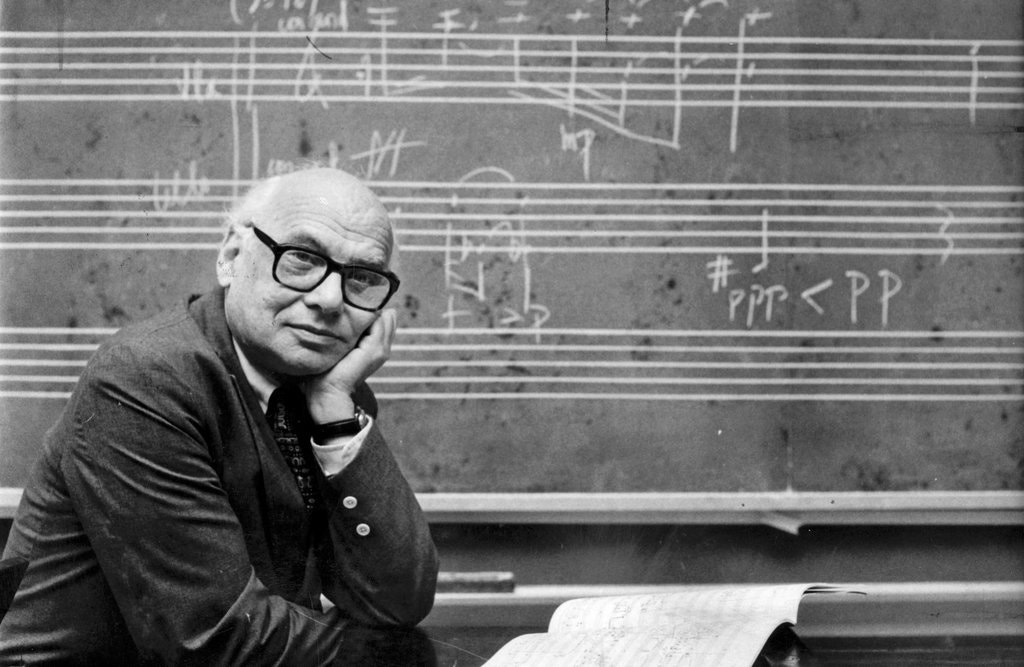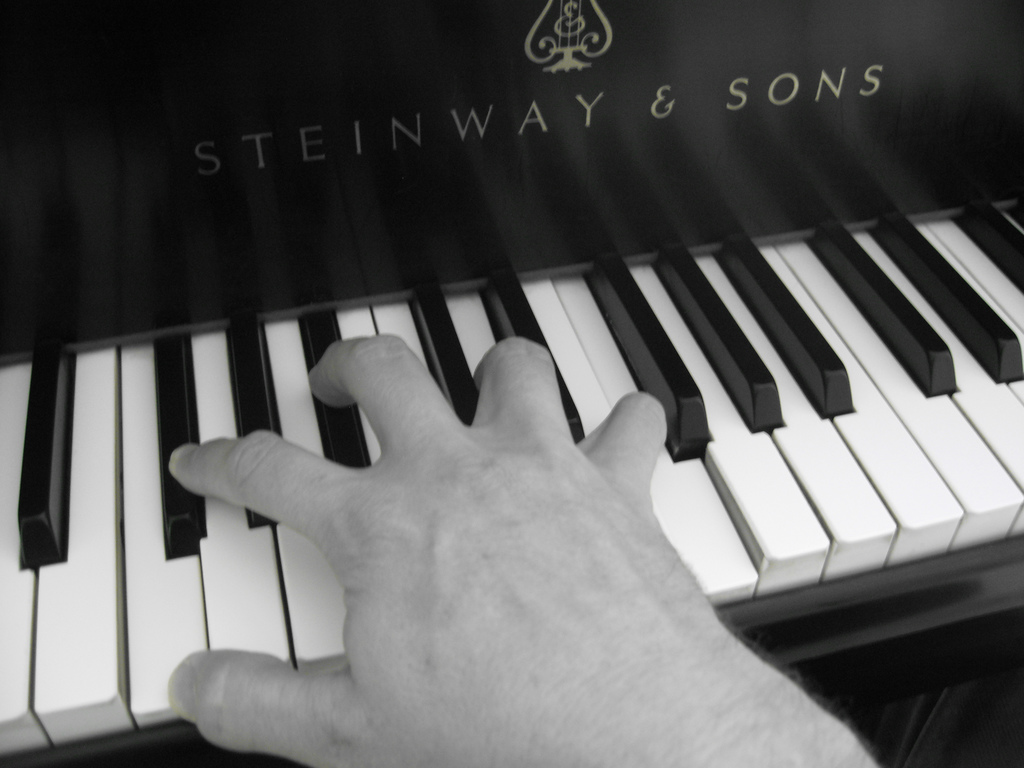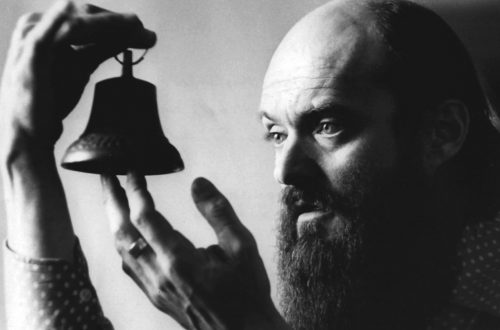
Goodnight Milton
Today we bid farewell to another musical giant, the one and only Milton Babbitt who died Sunday at 94. Babbitt’s boundary-pushing musical works posed challenges both for his audience and his performers. With pieces that often carried punny titles (e.g., “Whirled Series”), Babbitt would dive into deep explorations of harmony, rhythm, and timbre often driven by sinister mathematical patterns. It has been said that only a handful of scholars could match his depth of musical understanding and insight. After reading the amazing twelve part interview by Frank Oteri, I’m convinced that this statement is not hyperbole. The man was a genius.
To most people, the name Milton Babbitt, if it evokes anything, usually evokes outer worldly electronic music. And that’s reasonable since he’s best known for being a pioneer in that genre thanks to his well-documented efforts on the RCA Mark II (picture). But for Babbitt it was a means to an end, part of the journey that is composition:
Look, when I turned to the electronic medium, not only was I fascinated by it—I’m gonna use that cliché, the challenge because it was—I had to work for years before I could manage that instrument in any way that I regarded as satisfactory. But the truth is that I did like the notion of walking into that studio with a piece in my head and walking out with a completely performed work in that little tape under my arm. I love to work in isolation, let me say that. I love to compose in isolation, though I’ve often composed, as Gunther Schuller has, on subways. I have also, I like the idea of being able to stand there and redo and redo and redo. If I had that kind of rehearsal time with an orchestra, then I’d probably feel the same way. I think it was a real practical consideration there: Except for some very close friends, I never got the performances I wanted. And that certainly was one of the aspects of it. But I loved working with the synthesizer; I just liked it.
In tribute to this remarkable man, I spent a large portion of my day listening to Babbitt: Soli e Duettini, which is a collection of his works performed by The Group for Contemporary Music. How do I describe it? I can’t but I ended up lying on the couch listening to it (and others) for several hours. I recommend Babbitt for any brave soul with free time at their disposal.
Here’s another interesting example of his work.
The works on Soli e Duettini are solo and duo pieces (hence, the title), my favorites being “Beaten Paths” (snare drum), “Melismata” (violin), and “Whirled Series” (saxophone and piano). In the above-mentioned interview, he spoke frankly about the frustrations in getting his music performed, that it was simply too difficult for all but a few. I certainly hope more artists will endeavor to record and perform these pieces in the future. I suspect the importance of these works will start to rise now that he has left the building.
Milton Babbitt: 1916-2011
Update: NPR just posted an exclusive documentary on Babbitt: Watch It!




One Comment
Pingback: